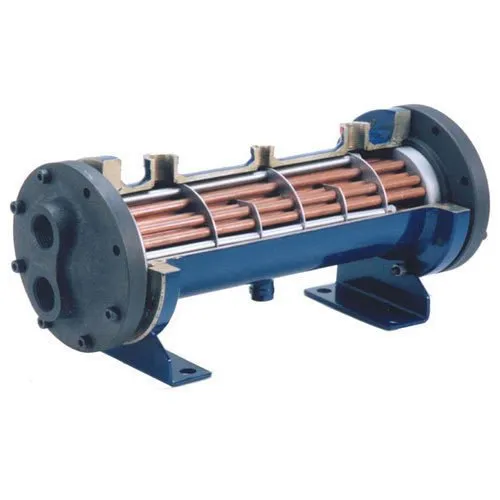Power Pack Oil Cooler is a vital component used in hydraulic power packs to regulate the temperature of hydraulic oil and prevent overheating. In hydraulic systems, fluid is continuously circulated under high pressure to power machinery and equipment. This process generates significant heat due to friction and compression, which, if not controlled, can degrade the hydraulic oil and reduce system efficiency.
To counter this issue, oil coolers are integrated into hydraulic power packs to dissipate excess heat and maintain the oil at an optimal temperature. Proper cooling ensures longer oil life, prevents system failures, and enhances operational efficiency. Oil coolers are widely used in industries such as manufacturing, construction, mining, marine, energy, and heavy machinery, where hydraulic systems play a crucial role in operations.
Unique Points About Power Pack Oil Coolers
Critical for Hydraulic System Performance
- Hydraulic systems depend on precise pressure control, and temperature fluctuations can affect performance.
- Overheated oil loses its viscosity, leading to poor lubrication and increased wear on components.
- Oil coolers help stabilize temperatures, ensuring consistent pressure and optimal power transmission in hydraulic systems.
Extends Oil and Component Lifespan
- Excessive heat oxidizes hydraulic oil, forming sludge, varnish, and deposits inside the system.
- Oil degradation can lead to clogged filters, blocked valves, and inefficient system operation.
- A properly functioning oil cooler extends oil change intervals and reduces wear and tear on system components, saving on maintenance costs.
Prevents Cavitation and Fluid Foaming
- Cavitation occurs when hydraulic oil reaches high temperatures, forming vapor bubbles that collapse and damage internal components.
- Foaming leads to air pockets in the fluid, reducing hydraulic efficiency and causing erratic machine performance.
- Oil coolers help prevent cavitation and foaming, ensuring smooth and stable hydraulic operations.
Designed for Continuous and Intermittent Duty Cycles
- Power pack oil coolers can be designed for continuous-duty applications, where machines operate 24/7 in industrial environments.
- Some are optimized for intermittent duty cycles, commonly used in mobile hydraulic applications such as construction and agricultural equipment.
- Proper selection of the cooler type based on duty cycles prevents overheating and efficiency loss.
Available in Air-Cooled and Water-Cooled Variants
There are two main types of power pack oil coolers:
A. Air-Cooled Oil Coolers
- Use high-speed fans and heat exchanger fins to remove heat from the oil.
- Ideal for applications where water supply is limited or where compact cooling solutions are needed.
- Used in industries such as construction, transportation, and industrial automation.
B. Water-Cooled Oil Coolers
- Use water as a cooling medium, transferring heat efficiently from the hydraulic oil.
- Suitable for heavy-duty applications where higher cooling capacity is required.
- Common in marine, power generation, and steel industry applications.
Compact and Space-Saving Designs
- Modern power pack oil coolers are designed to be compact, making them suitable for machines with limited space.
- New designs feature high-efficiency aluminum cooling fins and optimized airflow patterns to maximize heat dissipation while minimizing the unit size.
Customization for Specific Applications
- Oil coolers can be custom-engineered with different heat exchanger configurations, special coatings, and materials for various applications.
- Stainless steel or coated aluminum models are available for corrosive environments.
- Special anti-vibration mounts and noise-reduction fans can be included for sensitive applications.
Integration with Smart Monitoring Systems
- IoT-enabled oil coolers come with temperature sensors and real-time monitoring systems to provide insights into system performance.
- Predictive maintenance technology alerts users before failures occur, reducing unexpected downtime and costly repairs.
- Wireless connectivity allows remote monitoring of oil temperature, pressure, and cooler efficiency.
Power pack oil coolers are critical for maintaining temperature stability in hydraulic systems, preventing overheating, oil degradation, and component failure. By ensuring optimal viscosity, efficient power transmission, and longer equipment life, these coolers play an indispensable role in various industrial applications.
The choice between air-cooled and water-cooled oil coolers depends on factors like space availability, cooling capacity, and environmental conditions. With advancements in energy efficiency, smart monitoring, and compact designs, modern oil coolers provide high reliability, low maintenance, and sustainable cooling solutions for hydraulic power packs.

